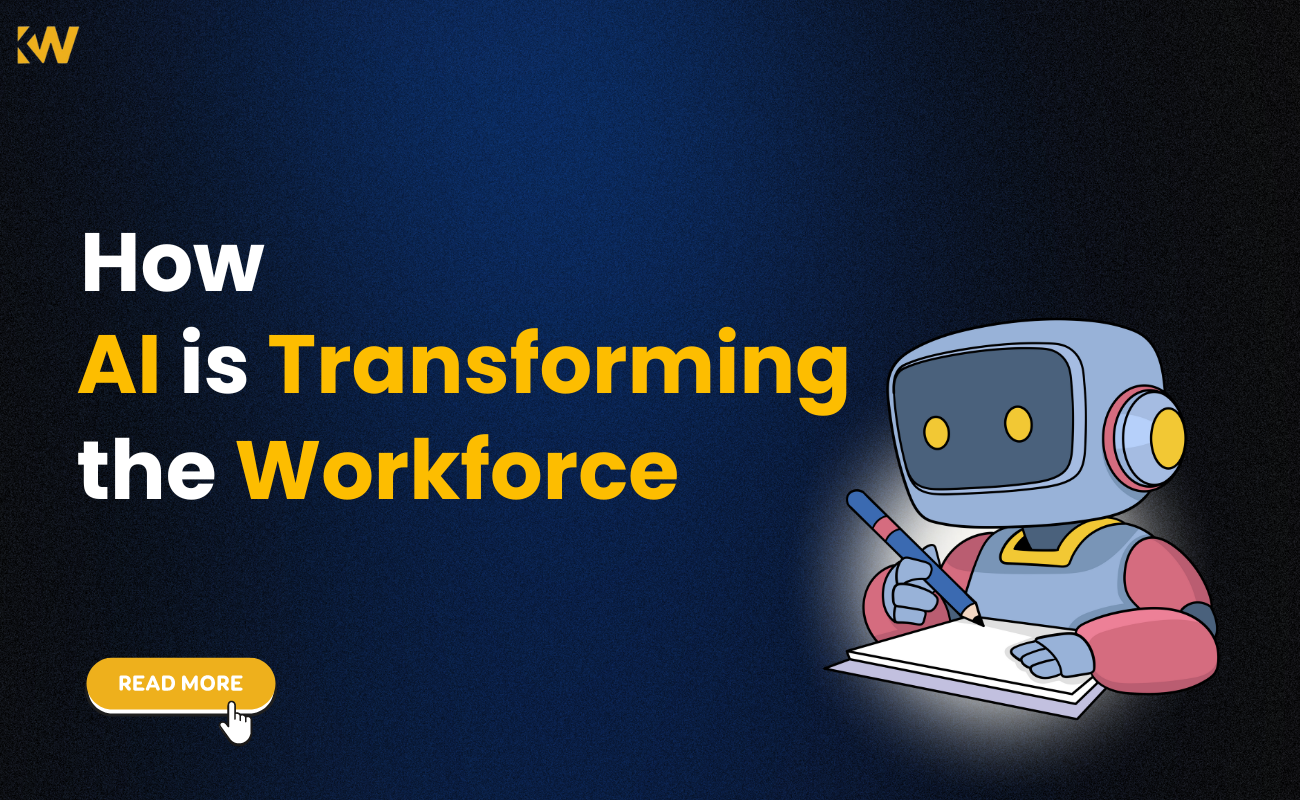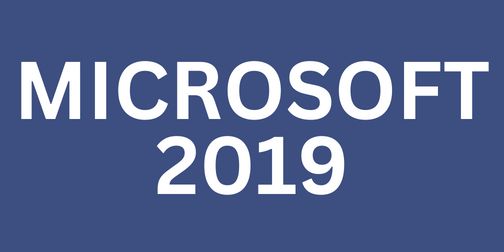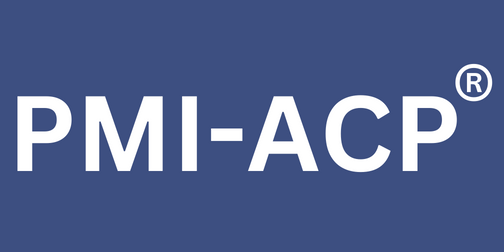
How AI is Transforming the Workforce
Posted On September 26, 2024 - 14:59 PM
Artificial Intelligence (AI) has been revolutionizing the employment market by bringing new kinds of jobs and automating repetitive tasks. AI creates and improves opportunities in the fields of healthcare, pharmaceuticals and many other fields.
While certain industries could see substantial job loss, however, the overall economy will benefit from improved output and productivity. Since AI continues to develop and improve, understanding how it affects employment as well as the economy is essential.
AI is fast changing the work environment, and there are significant changes already being seen in the job market as well as the job market. While AI continues to evolve and grow, both businesses and employees must change to remain effective and competitive. In this blog we'll examine how AI impacts employees, the ways AI will help businesses and workers increase their effectiveness, as well as the possible advantages and disadvantages of the implementation of AI on a large scale.
Impact of AI on Job Roles
-
The rapid growth of automation and AI is altering the workplace, impacting jobs across a variety of sectors, including high-tech manufacturing. With the help of advanced technology numerous manual and repetitive tasks are now automated, resulting in increased efficacy and effectiveness.
-
However, this shift is leading to job roles changing as some become obsolete, while new ones are emerging. For instance, workers in the manufacturing industry require new skills to manage and maintain machines, as well as robots can take the place of manual workers. Furthermore, AI integration into high-tech manufacturing processes has created new jobs such as data analysts, AI programming experts, and experts in machine learning.
-
The new job roles will require technical knowledge and a thorough knowledge of the business process. Future jobs will require a combination of creativity, technical expertise and flexibility to use the potential to automate AI efficiently.
-
Since AI continues to revolutionize the employment and job landscape, workers must change to remain current, competitive and relevant in their careers. One approach to be flexible is to work on acquiring skills that are highly sought-after like machine learning, data analytics and programming. This could mean taking classes and attending workshops or obtaining certificates in these areas.
-
Another option is to take advantage of the opportunities provided by AI like making use of it to enhance human capabilities and perform more efficiently. This could involve learning to utilize AI technologies and tools as well as cooperating with AI systems to get greater outcomes.
-
Furthermore, it is important to stay updated on the most recent advancements in AI and the impact it has on their respective industries. This could include reading journals in the field as well as attending conferences and connecting with colleagues and experts.
-
Additionally, they should be agile and flexible, because the job market and job market continue to change rapidly as a result of AI as well as other technology advancements. By adapting to change and continuously learning new skills and abilities they can be successful in the world of AI is changing our work practices.
Impact of AI on the Workforce
-
The impact of AI on the workforce is far-reaching. It's a way to automate routine and repetitive tasks, the changing requirements for skills as well as the displacement of jobs. This is beneficial to employees because they can focus on more challenging and creative tasks, but it could also cause anxiety about job displacement and the changing requirements for certain kinds of jobs.
-
But, AI is also creating new employment opportunities, specifically in the fields of data analytics, machine learning as well as AI development.
-
However, despite these advantages, there are some concerns regarding the negatives of the implementation of AI on a greater scale within the workforce. A major concern could be the displacement of jobs, which can cause unemployment and a necessity of reskilling and upgrading.
-
Another issue is the possibility of bias and discrimination that could be present in algorithms, which could result in negative effects on people who are marginalized and their communities.
-
Security and privacy are two significant concerns in the context of the impacts on the impact of AI on the working population. As AI advances and is sophisticated, employers need to make sure that their personal information is secured as well as AI systems are protected from cyberattacks.
-
However, AI can also enhance efficiency and productivity. Furthermore, its advances could open up new opportunities for those who have the appropriate abilities and skills.
Impact of AI on Employment
Artificial Intelligence (AI) can be seen as altering the employment market by creating new kinds of jobs, as well as enhancing existing ones. While AI continues to grow and grow, it's crucial to know how it affects the employment market, the kinds of jobs that are coming up and their potential effects on unemployment rates and the economy in general.
-
AI Teachers and Trainers: These are individuals who are accountable for training teachers and training AI systems. They make sure the AI algorithms are reliable and efficient. They also create innovative AI systems and applications.
-
Data Scientists and Analysts: With the increasing amount of the amount of data generated by AI systems There is a growing need for people who are able to analyze and interpret the data. Data analysts and scientists employ AI tools to analyze data, identifying patterns and insights that could aid businesses in making better decisions.
-
Human Machine Teaming Management Managers: as AI is becoming more integrated into workplaces there is a rising demand for people who can oversee the interactions between machines and humans. Human-machine teaming management managers ensure that AI systems are able to work alongside human workers, improving productivity and efficiency.
-
AI Experts in Ethics and Public Policy: As AI grows more widespread it is becoming a greater demand for people who can deal with the ethical and policy impacts of AI. AI ethical and policy specialists make sure that AI systems are designed and implemented ethically and responsibly.
AI has created new employment opportunities that require critical thinking, creativity and solving problems. Artificial Intelligence is also enhancing existing jobs by increasing the accuracy and precision in a variety of jobs, including quality control and analysis of data. For instance, in the field of healthcare, AI is being used to assist nurses and doctors in the diagnosis and treatment of patients which improves patient outcomes as well as reduces the workload of healthcare personnel.
How to learn ai
-
To learn AI, start by understanding the fundamental concepts such as machine learning, deep learning, and data science.
-
Begin with online courses, tutorials, and resources that provide a strong foundation in mathematics, programming (Python is highly recommended), and algorithms. Platforms like Coursera, edX, and Udacity offer excellent AI courses for beginners.
-
Additionally, gaining hands-on experience through projects, participating in AI challenges, and exploring open-source tools like TensorFlow and PyTorch will deepen your knowledge, how to learn ai is a structured process that requires dedication and continuous learning.
-
Begin by mastering the basics through online courses and tutorials that cover key topics such as machine learning, deep learning, and data science. As you progress, practical projects and experience with tools like TensorFlow and PyTorch will help you apply your knowledge in real-world scenarios.
How to use ai in workplace
AI can be applied within the work environment to improve processes, increase productivity, and take data-driven, informed decisions. Begin by identifying the jobs that would be automated including data analysis, customer service and other routine administrative tasks. AI-powered tools such as chatbots, predictive analytics and machine-learning models can be incorporated across departments to boost efficiency. For instance, AI-powered bots for customer service are able to handle the most common questions as well as machine learning models that can forecast market trends and improve the supply chain processes. It is crucial to educate employees on how to efficiently utilize this AI tools to make the most of their capabilities.
Learning how to use ai at work requires knowing how AI can be beneficial by automated tasks that are repetitive, increasing the decision-making process through data analysis or improving customer interaction. Businesses can incorporate AI tools into everyday activities by utilizing chatbots for customer service, to using AI algorithms to anticipate trends in sales or streamlining processes for workflow.
Final Thoughts
-
Technology is evolving at a rapid pace, and along with it, the roles we play in our jobs. Artificial Intelligence and automation are transforming the way we work and we're beginning to observe significant effects across a variety of sectors. While some jobs could be automated, other roles are transforming to make applications of AI.
-
As the usage of AI is growing it is imperative to be proactive to make sure that the advantages of AI are in balance with the requirements of workers and society in general. We need to ensure that we're well-prepared for the shifts in the workplace and learn new abilities to succeed in the age of technology.
-
It is also crucial to consider the possible job loss due to automation. We need to develop strategies that assist workers at risk of being displaced and ensure they can access educational and training programs that provide them with the knowledge required to be able to change to new jobs.
-
Despite its challenges, however, the introduction of AI in jobs can enhance productivity, drive innovation and enhance our living conditions. By harnessing the full power of AI and machine learning, we can create new employment opportunities as well as boost economic growth and make major strides towards tackling some of the most pressing problems.
-
Its impact on AI on jobs is substantial and sweeping. It is imperative to take the change proactively, making sure that the advantages of AI are in balance with the needs of employees as well as society. In this way, we can build a future in which AI and human workers collaborate seamlessly to reach common goals and propel forward.
FAQ
Q1. How is artificial intelligence transforming the workforce?
Ans. By automating routine and mundane tasks, AI can potentially allow workers to focus on the core aspects of their roles that require human insight, creativity, and specialized skills.
Q2. How AI is transforming the world of work?
Ans. According to a report by the World Economic Forum, by 2025, AI will create 97 million new jobs across 26 different sectors, such as data analysis, software development, engineering, and education. AI is also changing the skills that workers need to succeed in the digital economy.
Q3. How is AI affecting the workforce?
Ans. Research shows that AI can help less experienced workers enhance their productivity more quickly. Younger workers may find it easier to exploit opportunities, while older workers could struggle to adapt. The effect on labour income will largely depend on the extent to which AI will complement high-income workers.
Q4. What is the role of artificial intelligence in the workforce?
Ans. Focusing on opportunities in human resources ("HR"), AI offers HR departments the chance to enhance access to opportunities for a broad segment of the workforce. It can help managers achieve higher performance levels by reducing administrative tasks and providing quicker, more accurate insights.
Q5. How is AI used in workforce management?
Ans. AI empowers organizations to forecast and plan their workforce needs more accurately. Algorithms can predict future demand, identify skill gaps, and recommend appropriate workforce adjustments by analyzing historical data, market trends, and business objectives.


















